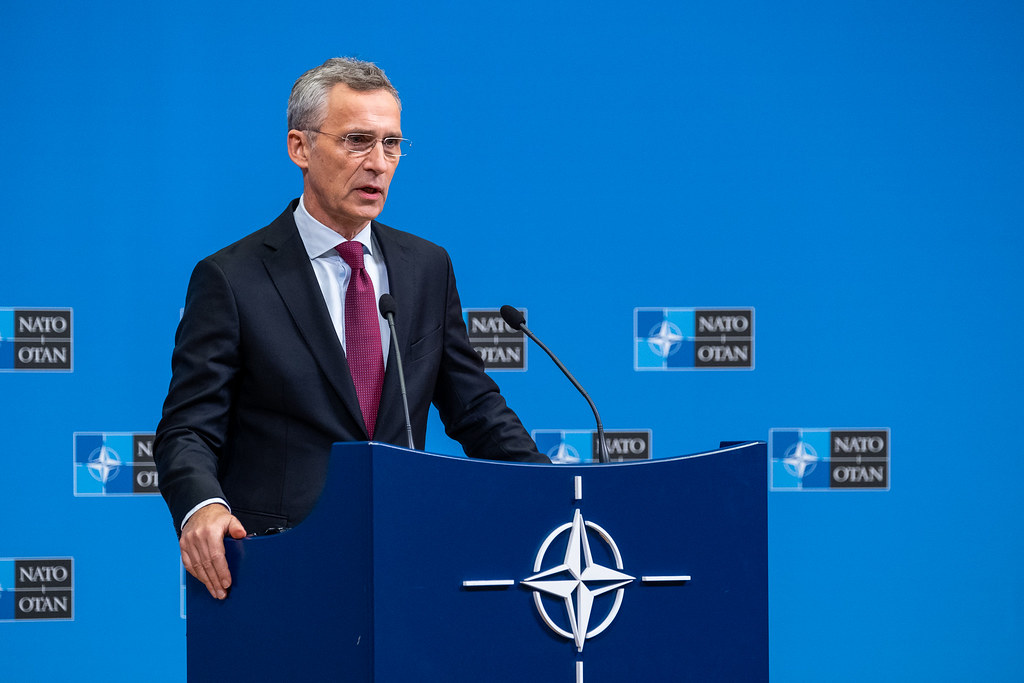The war in Ukraine has dried up Europe’s stockpiles of weapons. Financial Times report

Arms stockpiles in Europe are running low, and governments are wondering how long they can continue to support Ukraine. The Financial Times article
Jens Stoltenberg chooses his words carefully. The stern Norwegian NATO secretary general is famous for his ability to rigidly stick to points of view. So when he warned this week that the “under pressure” Western defense sector has “a problem,” he meant it. As the Financial Times writes, Russia's war against Ukraine is almost a year old. The victims are tens of thousands. Western governments have provided Kiev with more than $110 billion in support , including $38 billion in arms, according to the Kiel Institute.
EUROPE HAS NO MORE WEAPONS TO GIVE UKRAINE?
But in many capitals, defense ministers are told by their generals that there is little left to give. Warehouses and landfills are bare. Denmark gave Ukraine all of its Caesar howitzers. Estonia has supplied so many 155mm artillery guns that it has run out.
For this reason, conversations between Western defense ministers who met at NATO headquarters this week and who will convene at the Munich Security Conference this weekend are filled with furrowed brows and anxious looks: how long can we support this level of support, and with what?
Looming over them is Russia's spring offensive, which Stoltenberg said has already begun. It is expected to involve a massive surge of newly mobilized troops, a level of air power not yet deployed by Moscow, and the daily firing of as many artillery shells as Europe produces in a month.
“It is worrying what is about to happen,” admitted Kajsa Ollongren, Dutch defense minister.
He described "a sense of urgency" among his fellow NATO ministers this week. "It's a critical time for what we see happening on the ground and what we expect to happen in the coming months."
“Also, thinking a little further ahead, a serious scenario is that this war drags on for a long time,” he added.
Europe responded to Russian President Vladimir Putin's invasion with initial disbelief. The capitals which had earlier declared that it had no plans to do so, then duly predicted that Kyiv would fall in days.
But that quickly gave way to a level of unity and support that defied both expectations and the past. Armies, hungry for funding from governments that had long rejected the idea of war in Europe, dug in and within weeks arms were flowing east across the Polish-Ukrainian border (as refugees poured in from other party).
THE PRESSURE ON THE EUROPEAN DEFENSE INDUSTRY
But nearly 12 months of grueling warfare, in which Putin's troops targeted both civilian infrastructure and military objectives, has put immense pressure on Europe's ill-prepared defense sector.
European factories are barely able to produce enough shells to cover Ukraine's needs for a week. Wait times for some ammo have more than doubled.
Stocks of Soviet equipment held by the Eastern NATO states, which Ukrainian soldiers know how to use, are depleted. Decisions to send in new types of Western-made weapons – such as armored vehicles – are greeted with enthusiasm, but are followed by weeks and months of delays as armies realize the need to refurbish them.
“It's not going well for the Ukrainians. I'm running out of everything,” said Judy Dempsey, a non-resident senior fellow at Carnegie Europe. "Ukraine really needs the means [to fight back], but it is not getting them."
“Europeans fully support the Ukrainians. But that's not enough,” Dempsey said. "It is not the political will to support Ukraine that is at issue, but the actual ability to deliver enough, and fast enough."
BIG CONTRACTS WITH WEAPONS MANUFACTURERS
The answer, according to most officials, is large, long-term contracts with defense manufacturers, initially for the war effort, but with a pledge by European governments to keep buying even when peace comes. Ukraine. Conversations of this kind will also take place in Munich.
This week, Estonia's defense minister proposed to his counterparts that donor countries unite to sign a 4 billion euro contract for the purchase of 1 million artillery shells, as a testbed for joint purchases that give defense contractors the confidence to invest in new capabilities.
Seven European countries, including the UK, Norway and Denmark, announced on Wednesday a package of jointly funded direct contracts between Ukraine and Western defense manufacturers for supplies including artillery ammunition and spare parts for tanks.
NATO, for its part, ordered all its members at the end of last year to carry out a rapid check of their stockpiles. Now it is using the results to bash individual governments into signing new manufacturing contracts.
“We are not going to sit around and watch,” Stoltenberg said this week, suggesting that factories add shifts and “work on weekends as well.”
The problem, of course, is that the Russian war economy has been running for at least a year. Europe, meanwhile, is just getting started.
(Excerpt from the foreign press review by eprcomunicazione)
This is a machine translation from Italian language of a post published on Start Magazine at the URL https://www.startmag.it/mondo/inventari-armi-europa-guerra-ucraina/ on Sun, 19 Feb 2023 06:52:18 +0000.
